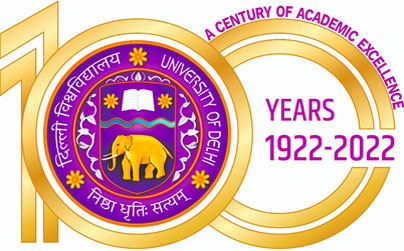VAC 1: SWACHH BHARAT
Credits
02
Lecture
01
Tutorial
0
Practical/Practice
01
Eligibility criteria
Pass in Class 12th
Pre-requisite of the course
NIL
The Learning Objectives of the Course are:
- To understand the developmental challenges with reference to sanitation infrastructure and practices.
- To build values of cleanliness, hygiene and waste management in diverse socioeconomic contexts.
- To understand planning of social policy and programmes.
- To use waste management techniques at community level.
- To instil a sense of service towards society and the Nation.
The Learning Outcomes of the course are:
- Understanding the significance of the Swachh Bharat Abhiyan.
- Ability to analyse and predict the sanitation challenges of India
- Determine the link between sanitation and development.
- Contribute to the Swachh Bharat Abhiyan through real time projects/fieldwork.
UNIT-I Introduction to Swachh Bharat Abhiyan (4 Weeks)
- Gandhian philosophy of Cleanlinesst
- Swachh Bharat Abhiyan {SBA}
- Hygiene, Sanitation & Sustainable Waste Management
- Agencies and nodal Ministries for SBA
- Different phases of the SBA and its evaluation
- Citizens' Responsibilities: Role of Swacchagrahi
UNIT- II Swachh Bharat: Rural and Urban Facets (8 Weeks)
- Indicators for Swachh Bharat
- Rural
- Sanitation coverage across households (2014 vs. 2022)
- Open Defecation Free (ODF} Villages: Parameters
- ODF plus model: Key indicators
- Urban
- Sustainable sanitation
- Waste/water and solid waste management
- Garbage Free Cities
UNIT- III Prospects and Challenges (3 Weeks)
- Attitudes and Perceptions
- Operational and Financial issues
- Monitoring & Supervision
- Community Mobilization
Suggested Activities: List of activities to be undertaken:
- Identify plastic and e-waste in and around the institution and suggest innovative technologies to minimize wastage.
- Identify events/fests that generate maximum waste and ways to minimize it.
- Visit canteen/shops and track the lifecycle of wet/dry waste in and around the institution and document the findings in the form of a Project Report.
- Conduct interviews of stakeholders to understand the level of awareness.
- Conduct a Clean Audit of the Institution and identify areas for action.
- Conduct cleanliness drives.
- Organise Swachhata Pakhwada meetings, rallies, and mobilization camps within the identified communities.
- Students may participate in the Swachh Bharat Internship programme.
- If required students can share their experiences in the form of a Project Report.
- Any other Practical/Practice as decided from time to time
- "Swachh Bharat Mission - Gramin, Department of Drinking Water and Sanitation, Ministry of Jal Shakti"
- India 2021, Ministry of Information & Broadcasting
- http://swachhbharatmission.gov.in/SBMCMS/swachhta-pakhwada.htm
- https://swachhbharatm ission.gov.in/SBMCMS/a bout-us.html
- https://www.communityledtotalsanitation.org/sites/communityledtota!sanitation.org/files/ODF _verification_checklist.pdf
- https://sbm.gov.in/phase2dashboard/PhaselI/NationDashboard.aspx
- https://www.niti.gov.in/sites/default/files/2019-08/Report%20of%20SubGroup%20of%20Chief%20Min isters%20on%20Swachh%20%20Bharat%20Anhiyaan.pdf
- https://swachh bha ratm ission.gov. in/SBM CMS/writereaddata/Porta1/1mages/pd/brochure/Greywatermanagement.pdf
- https://swachhbharatmission.gov.in/SBMCMS/writereaddata/Portal/lmages/pdf/brochure/PWMBS 28th June.pdf
- Gol {2020). Swachh Bharat Mission (Grameen) Phase 2: Operational guidelines. Department of Drinking Water and Sanitation, Ministry of Jalshakti.
- MoHUA (2017). Guidelines for Swachh Bharat Mission - Urban (PDF). Ministry of Housing and Urban Affairs, Government of India.
Examination scheme and mode: Subject to directions from the Examination Branch/University of Delhi from time to time


